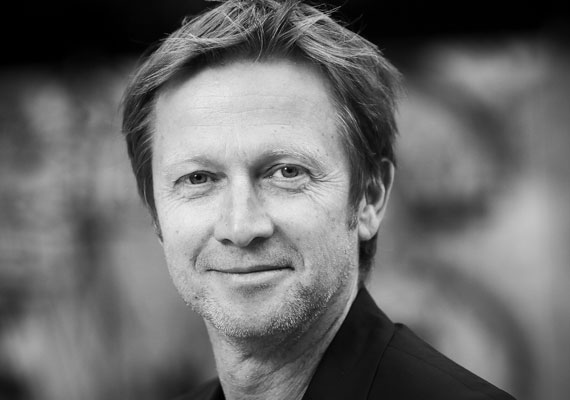Damjan Kozole • Director
"Even half is more than nothing"
by Cineuropa
- Cineuropa chatted to Slovenia’s Damjan Kozole, who won the Eurimages Co-production Development Award at Sarajevo's CineLink for his new project Half-Sister

Slovenian filmmaker Damjan Kozole won the Eurimages Co-production Development Award, worth €20,000, at the Sarajevo Film Festival's CineLink for his new project Half-Sister (see the news), a story of two estranged sisters who are, after 25 years of barely seeing each other, forced by circumstances to share an apartment.
Cineuropa spoke to Kozole about his project, the award, how the production landscape in Europe has been changing over the last 20 years, and what kind of trends in filmmaking he sees as being positive.
Cineuropa: In your films, you often take family ties or relationships between friends as a starting point for issues in society that you want to explore. In which ways is Half-Sister going to be similar or different to this approach?
Damjan Kozole: The idea behind this film is simple and – this is the difference with my previous films – almost optimistic: that friendship and bonding among people today is still possible, and that one has to get over the hatred. We live in dangerous times, when crazy people and psychopaths are thriving. All that's left for us is compassion – and humour.
The characters in this story are held captive by failed or failing relationships from which they cannot free themselves or don’t know how to. These damaged, interpersonal connections are symptoms of a time when the relationship between the individual and society is deteriorating, just as feelings of security, belonging and trust in institutions are deteriorating within European society. The last hope for an individual may lie within intimate relationships, or even between estranged half-sisters. Even half is more than nothing. This will be a film about the fears we carry within ourselves and about people who have become arrogant and abrupt just to hide their vulnerability…
What does the Eurimages Co-production Development Award mean to you? How are you going to use the money in the production?
Of course I'm very happy about the award, and it means a lot for our film. We will use the financial part of the award during the development and the financing of the film. The production time frame is scheduled for late 2018, with the pre-production starting in spring 2018 and the actual shooting in mid-October 2018, so there’s still a long way to go until then.
You started making films at the end of the 1990s, at a time when the whole system of co-production markets and pitching sessions wasn't so developed yet. Can you compare the production situation back then with the one today?
When we were producing Spare Parts (the shoot for which took place back in 2002), international co-productions, especially with partners from Central and South East European countries, weren’t so easy to achieve. It’s not that we didn’t want to co-produce, but our funders, at least in most of the countries in the so-called “New Europe”, still didn’t support that model fully. In many countries, they had been struggling with very basic things, as independent film funding bodies didn't even exist at the time, so nobody even thought of co-producing (except in terms of getting money from abroad for your films, no matter what). The only reliable co-producing partners at the time were from Western European countries, and they understood the financial problems of Eastern European filmmakers, but we somehow lacked their support for Spare Parts, which was produced as a solely Slovenian film. Today, it is even hard to imagine production in Europe without co-productions, and there are many ambitious co-productions between the countries of the former Yugoslavia.
Is there any particular trend or a filmmaker from the region of the former Yugoslavia today that you like?
I like the new filmmakers, those from the generation born just before the breakdown of Yugoslavia, who are about 30 years old today. They are unpredictable and unburdened with this past; their cinematic language is modern, and I enjoy watching their movies.
Did you enjoy reading this article? Please subscribe to our newsletter to receive more stories like this directly in your inbox.















